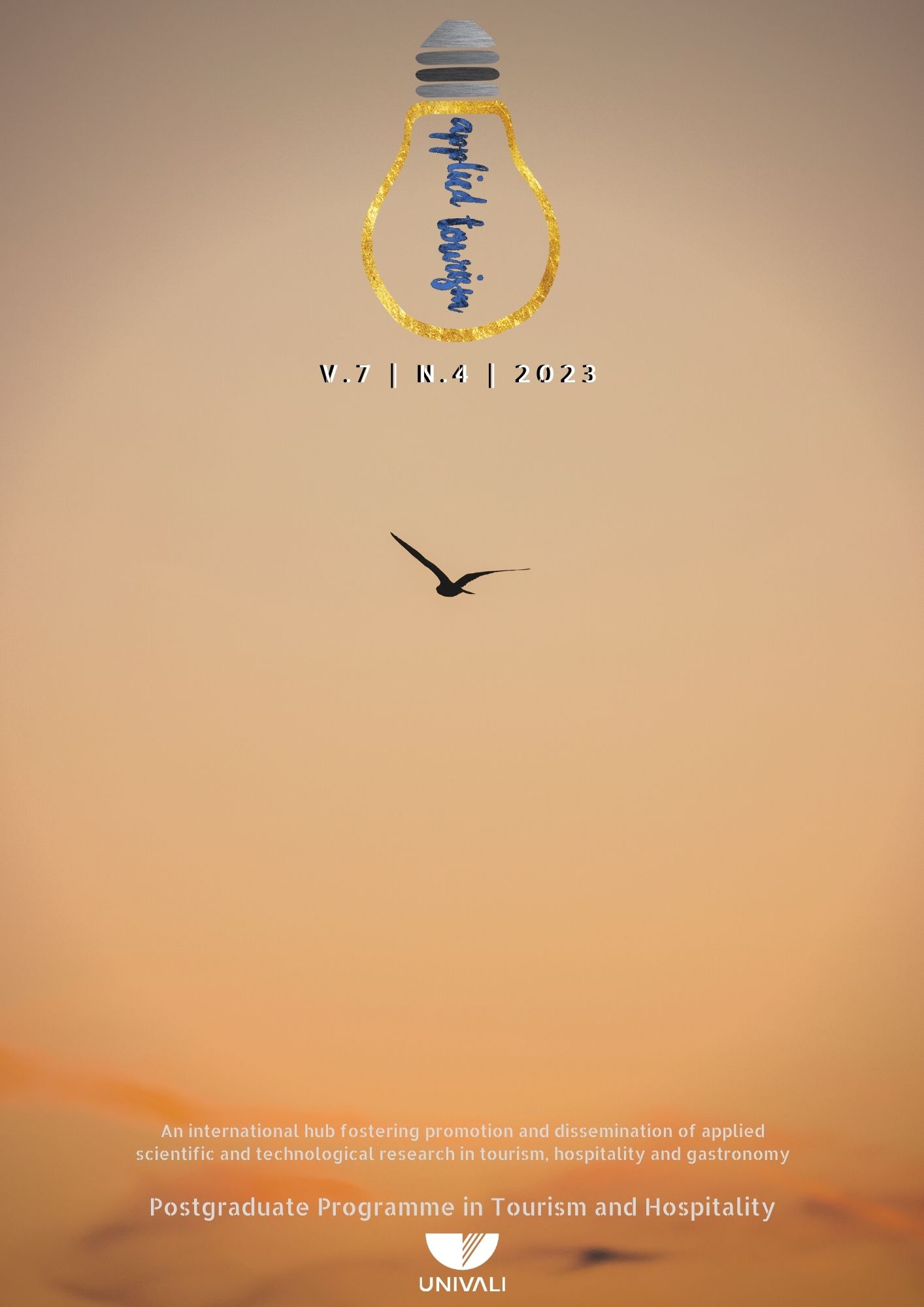Gastronomy as a tool for rural tourism development - the case of Casa Carnasciali Winery
DOI:
https://doi.org/10.14210/at.v8i1.19706Abstract
This paper focuses on the development of sustainable rural tourism, considering gastronomy as a tool. It examines the dynamics that occur between tourism and gastronomy, focusing on the valorization of gastronomic traditions and food regionality and highlighting them as motivating elements of tourism. Its specific objective is to analyze the relationship between gastronomy and rural tourism at the Casa Carnasciali Winery and Gardens, located in in Apucarana-Paraná, through the application of a case study. The exploratory-descriptive analysis was based on the concepts of rural tourism and sustainable development and on the relationships between tourism and gastronomy, therefore a case study was the chosen as the most suitable research method. A technical visit was made to the site, to observe the dynamics that occur between gastronomy and rural tourism, and semi-structured interviews were conducted with the owner and the chef responsible for the gastronomic offer of the enterprise. It was found that the offer of gastronomic services on the property helps bring financial sustainability to the business, with impacts on the dissemination of the food culture.
Downloads
Published
Issue
Section
License
Copyright (c) 2023 Thiago Henrique Lopes, Wagner Lopes Klein, Rosislene de Fatima Fontana

This work is licensed under a Creative Commons Attribution-ShareAlike 4.0 International License.
In this term of responsibility I (we) certify the participation in the drafting of the attached article, thereby making public my (our) responsibility for its content. I (we) declare not omitting any connections or financing agreements between I (we) and entities and / or institutions that may have an interest in the publication of this article. I (we) certify that the article is original and that the work, in whole or in part, or any other work with content substantially similar to my (our) authorship, in any other format (printed or electronic), was not sent to another journal and will not be sent while is being considered by the Applied Tourism. In this consent form, the authors give permission to the journal, in the case of approval by the Editorial Board, for the publication of the attached article in hard copy and/or electronic form, in a regular edition of the journal.










